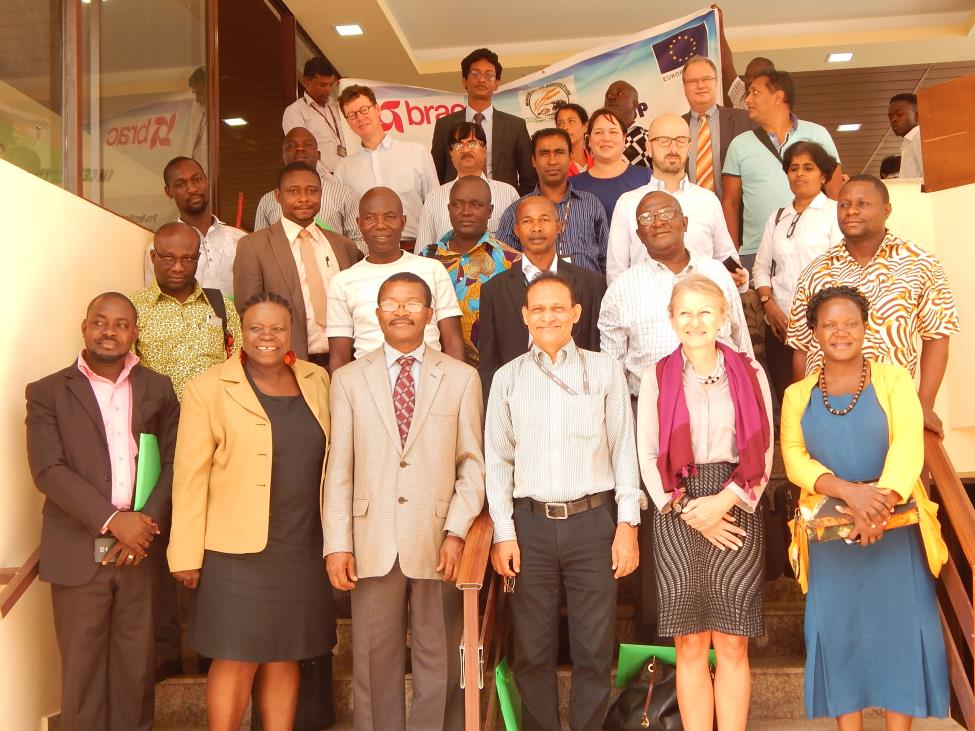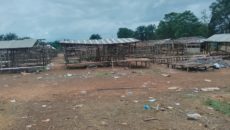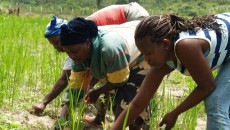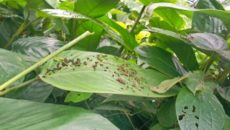CONGO TOWN, Montserrado – Amidst growing efforts to restore Liberia to its prewar status among developing countries in Sub-Saharan Africa, achieving food security remains a key challenge.
The government has identified achieving food security through increased production and value chain processing as major targets.
With funding from the European Union, BRAC Liberia has launched a project to reduce poverty by supporting those who are food insecure. The project also aims to strengthen Liberia’s resilience in reacting to crises.
The €1.5 million (US$1.6 million) project was launched Monday at an inception workshop at the Palm Spring Resort.
EU Ambassador to Liberia Tiina Intelmann said the project will contribute to achieving food security and improve nutrition to achieve sustainable development, which is the second objective of the United Nation’s Sustainable Development Goal.
She pledged the EU’s continuous commitment to help the government of Liberia achieve its development goals.
BRAC Liberia’s country representative Mainuddin Ahmed said the project, which began in October last year, will work to improve the capacity and livelihood of the most vulnerable groups of the populations in Montserrado, Margibi, Grand Bassa, Bomi, Bong, and Grand Cape Mount for the next two years.
“We will reach 38,255 people and 7,701 households who will benefit from increased incomes and increased resiliency and access to sufficient and nutritious food,†Ahmed said.
He said BRAC will implement a cash-for-work program for the 390 most vulnerable households, train at-risk households on livelihood and livestock rearing and carry out training programs for smallholder farmers on climate-smart agriculture technologies and comprehensive homestead development.
The organization will also provide smallholder farmers with training and input support from existing BRAC Liberia seed farms, poultry farms and feed mills, and create linkages with producer groups.
BRAC activities will also train community agriculture and livestock promoters in technical support of farmers in the local area, establishing demonstration farms, training entrepreneurs, and youths (especially females) and providing them with capital to develop new businesses to improve agricultural market capacity.
The project will train existing market actors and provide linkages to farmers, initiate forums for nutrition, education and mutual support, establish radio programs to share and disseminate technical messages and information based on local issues among community members and organize nutrition awareness programs among.
In implementing the project, BRAC will work in close collaboration with the Ministry of Agriculture to support the government’s Liberia Agricultural Transformation Agenda.
Agriculture Minister Moses Zinnah said stakeholders and beneficiaries must take the project seriously. He said recent data reveals that 40 percent of Liberia’s population lacks food security.
“It means that any program that addresses issues of food security [and] nutrition, must be taken very seriously because it helps to take our people out of poverty,†Zinnah said.

Agriculture Minister Moses M. Zinnah making remarks at the inception workshop. Photo: Gbatemah Senah
In addition, he said the program is consistent with LATA, which is the government’s new flagship program under the Agenda for Transformation.
He promised that the team at the Ministry of Agriculture will work closely with BRAC for the success of the project.
“I will personally pay visits to the fields to ensure that what we want to achieve is achieved and achieved successfully,†Zinnah assured.
Featured photo by Gbatemah Senah




